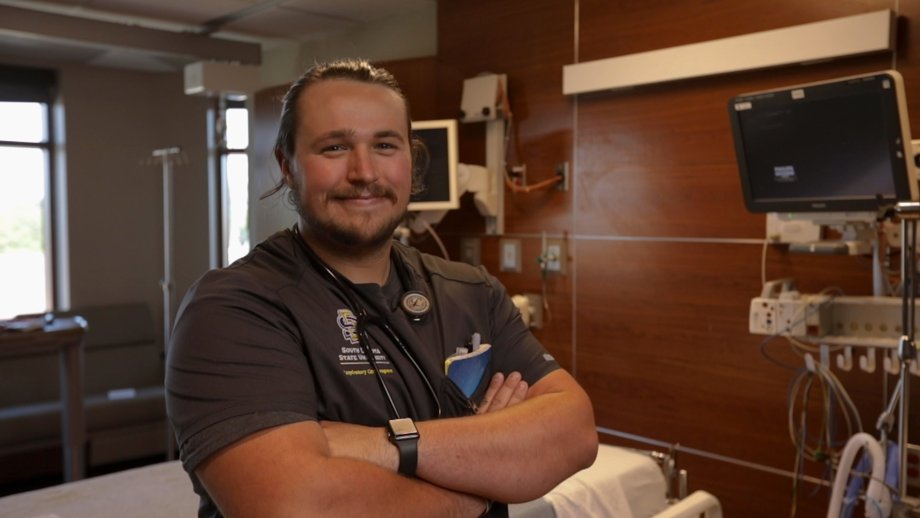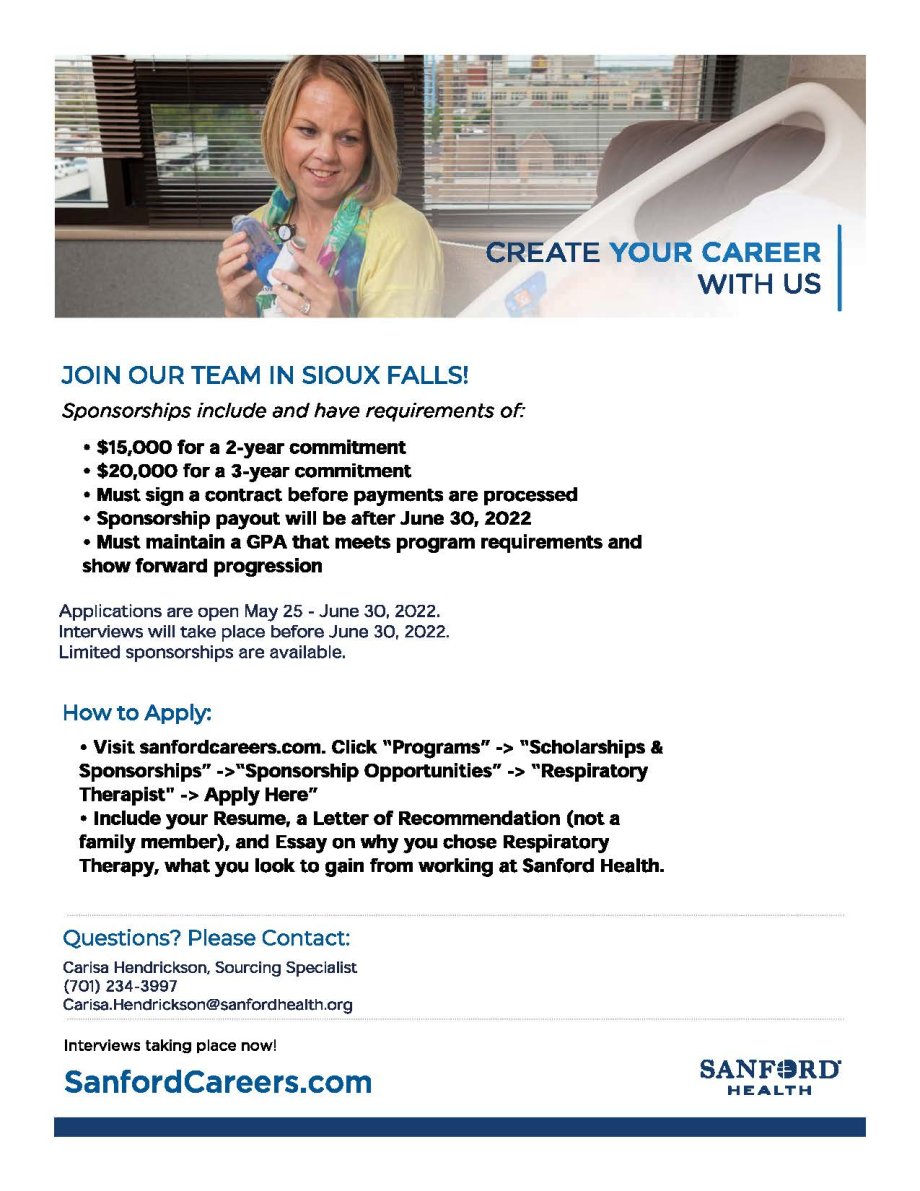
Beginning in the 2022-2023 academic year, Sanford will commit to sponsorships for up to 24 students in the respiratory care program at South Dakota State University. This is the next step in a pilot program that began in 2020 but has previously only been open to students based in Sioux Falls. Now all SDSU respiratory care students are eligible to receive the Sanford sponsorships.

This is exciting news for students, as well as for the growing respiratory care program at SDSU. The COVID-19 pandemic highlighted a need for more respiratory therapists in South Dakota and SDSU’s respiratory care program is working hard to meet the need by educating students to be successful respiratory therapists. Lacy Patnoe, director of the respiratory care program at SDSU, said that the newly expanded Sanford sponsorships “are a testament to how needed students and respiratory care workers are.”
According to Dr. Sharrel Pinto, head of the Allied and Population Health Department which houses the respiratory care program, “This is an amazing opportunity for our students. We have continued to have a great partnership with Sanford Health and are fortunate to grow this relationship further. Their commitment is an excellent example of our collaboration and reiterates their belief in the high quality respiratory therapists we graduate. Through programs like the ones Sanford offers, our respiratory care students can be guaranteed more financial security, which is important when most students pursuing a college degree today are burdened financially and stretched with student loans only to have to wait for jobs. I don’t believe there are many programs and professions that could offer this to their students on day one.”
The respiratory care program at SDSU offers two degrees, an associate and a bachelor of science, and students can complete the program in either Sioux Falls or Rapid City. Students who receive the Sanford sponsorship now have the freedom to choose to complete their degrees at either location. Students in the program have the benefit of learning from respiratory care professionals and gaining hands-on experience while completing their degree. The various resources and connections made available to students and the program staff’s experience and expertise contribute to the 100% job placement rate of SDSU’s respiratory care program.
Sanford’s clinical respiratory therapy program collaborates with SDSU to provide students the best education possible. According to Kristi Specht, director of respiratory therapy, neurodiagnostics, pulmonary rehab and sleep disorders at Sanford, “the students get a full experience with everything, almost like if they were an employee.” Students gain hands-on experience in a Sanford hospital, utilizing Sanford equipment and getting the “full hospital experience every day.”
Specht believes respiratory therapy is a “unique healthcare profession,” and not one that gets a lot of attention, which was part of the motivation behind the sponsorship program. With the growing need for respiratory therapists, there was also a need to encourage more students who wanted to pursue medical careers to consider respiratory therapy. The Sanford sponsorships help to make students aware of the respiratory care profession and provide incentive to complete their education here in South Dakota.
Specht emphasized the significance of the fact that the program is a sponsorship program as opposed to a scholarship program. Rather than only being able to put award money toward tuition, students can utilize sponsorship funds however they see fit. This allows students to “concentrate their time on studying,” said Specht, “which is what we want them to do.”
Students can choose to apply to either the two-year commitment sponsorship, which awards $15,000, or the three-year commitment sponsorship, which awards $20,000. For more information on the program.
- Contact:
- Telephone number: 605-670-9658
Republishing
You may republish SDSU News Center articles for free, online or in print. Questions? Contact us at sdsu.news@sdstate.edu or 605-688-6161.

